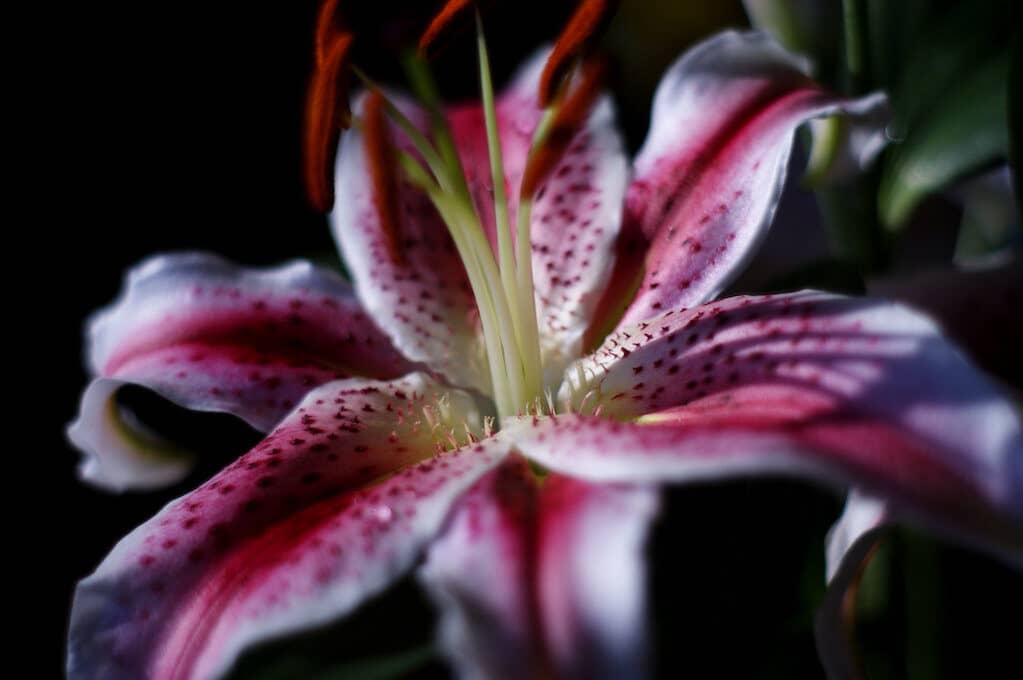At the end of the film, the father looked at the son, who was unshaven because he had been sitting by the father’s side for days. Without moving, the father said, “I wouldn’t change a thing.” Perhaps if it hadn’t been his son, he could have told him that, like everyone else, he missed a few good moments, or that he was, from time to time, bored, or that, for no real reason at all, he hated the taste of rain.
Then the flashbacks began on the screen in front of us, and we saw the father and the son at dinner; sitting quietly. Behind them, the stars were moving closer and closer to the window. You could feel the heat. The son was younger then, and even though he had begun to shave, you’d never be able to tell how long it had been since he last ran the razor over his soft, full cheeks.
“What are your plans at the insurance company?” The question that broke the silence was the reason there had been silence. The father worked for the insurance company, and he wanted, so badly, for his son to have plans to work there, to be ambitious, but all his son wanted (so badly) was to eat. It seemed unfair to me. Who could ever root for an insurance salesman? The son didn’t enjoy his dinner, and he didn’t enjoy the night, and his father didn’t really care, then, about that night. But his father seemed to be learning, as he died, that he had lacked a certain empathy during his life, or maybe he was learning that if someone squirms, and the stars are burning your neck, it means they don’t want to be an insurance salesman.
If he could, he would change little things like that.
If he could, he would not have sat silently when the son did, finally, speak his plan: “I want to fish,” the son said. “I want to fish in the river for trout. Strictly catch and release.”
It was not a plan. There was no ambition in it, or perhaps more accurately, there was no money in it. And the father, who had been hungry often when he was the son’s age, wanted his son to know hunger without ever having to experience it. I suppose there was a kindness in that.
The yellowing clouds flew fast overhead, like birds heading south for the winter.
As the flashbacks continued, we saw the father as a child, being sprayed with a hose by his neighbor, who was also his friend, and he, the father, was so happy. Then, the music in the theatre changed, from fast to slow, and a younger child appeared in front of a grey screen, a child who loved everything he didn’t fear. The child on the screen was the father until he was the son. And that was the moment the father, who saw in his mind what we saw on the screen, finally smiled—a slow wrinkled smile. But the son couldn’t see the screen, and was forced to watch his father watch. It made him cry. One of the son’s tears fell from his cheek to the linoleum floor. It woke a small aphid, napping on a purple-pink petal of a Star Gazer lily in the vase on the father’s bedside table. Startled, the small aphid looked over his shoulder at his wife. He was happy to wake up next to her. She snored. She was the sort of aphid that had trouble falling asleep but slept very deeply once she was asleep. She was pregnant, and the small aphid was full of fear. He didn’t want a child. All of his aphid friends had taken the plunge days ago, but honestly, if his wife hadn’t insisted, he would have been content, even happy, living out their remaining days on their little purple-pink petal. The small aphid loved his wife as he loved the flower, with all he had. So he kissed her forehead before he flew off the petal to see what was going on in the room.
As the small aphid landed on the bedside table, he saw the petal tremble a small tremble from his pregnant wife’s snore. He smiled. Then he saw the checkered linoleum floor below. He had feared the floor ever since he had been born, ten days before. It was where so many others had been squashed. Next, he saw the son’s green shirt, and was filled with joy. He had always been powerfully attracted to anything green. It may have been because he, himself, was green, or perhaps because he was one of the lucky aphids, born into the greenest grass in the field.
The small aphid saw the son crying, and he wished he could gather the water from his eyes to feed the flower so that it could live long enough to be his son’s home. Then, finally, the small aphid saw the father, blinking slowly, and fluttered to his shoulder.
“Are you really dying?” asked the small aphid.
“Yes, Father, I am,” answered the father, mistaking the small aphid for God.
“What will happen to your flowers when you die?” asked the small aphid.
“I’m not sure.”
“Will they be thrown away the moment you die?”
“No, not right away. But shortly after.”
“You aren’t dying today, though, are you?” asked the small aphid.
“That’s your decision, isn’t it?”
“Well then,” said the small aphid, “I would greatly appreciate if you didn’t die today.” The father was confused.
“You see,” continued the small aphid, “I myself will only be alive a few more days, if I’m lucky, weeks, and I have really grown to love the purple-pink petals of the Star Gazer lilies that your son brought for you.”
“But I don’t want you to die, ever,” said the father.
“That is nice of you.” The small aphid smiled. “Perhaps we can make a deal: I will live as long as I can for you if you live as long as you can for me.”
“Okay,” said the father.
“We’ll die together, then,” said the small aphid.
“But who’ll look after my son?” asked the father.
“I worry the same thing,” said the small aphid.
The small aphid’s words made the father sad, and, for the first time in quite some time, he began to cry. The son raised his head and saw his father’s tears fall slowly down his thin cheek and land on the loose skin of his old hand. He, the son, worried that the tears might tear into the thin skin, and that his father might begin to bleed. Then, seeing the small aphid next to the father’s ear, he flicked it into the wall, and it died before it hit the linoleum floor. Then, as was agreed upon the father, too, died. When the son realized what had happened, his tears struck the linoleum floor. The purple-pink petals of the Star Gazer Lily shook just enough to wake the small aphid’s wife. She didn’t like waking up alone.
“This is a strange movie,” I said, turning to you, but you had already fallen asleep on my shoulder, so I just kissed your forehead, and when the theatre cleared, I carried you home in the rain.
–
Dylan Macdonald is a recent graduate of the University of San Diego. He has recently been published or is forthcoming in the Alcala Review, Flash Fiction Magazine, Gravel: A Literary Journal, and Literally Stories, and was runner-up in the Cropper Creative Writing Contest for Fiction.
Lead image: “Star Gazer Lily” (via Flickr user Racy Rachel)

